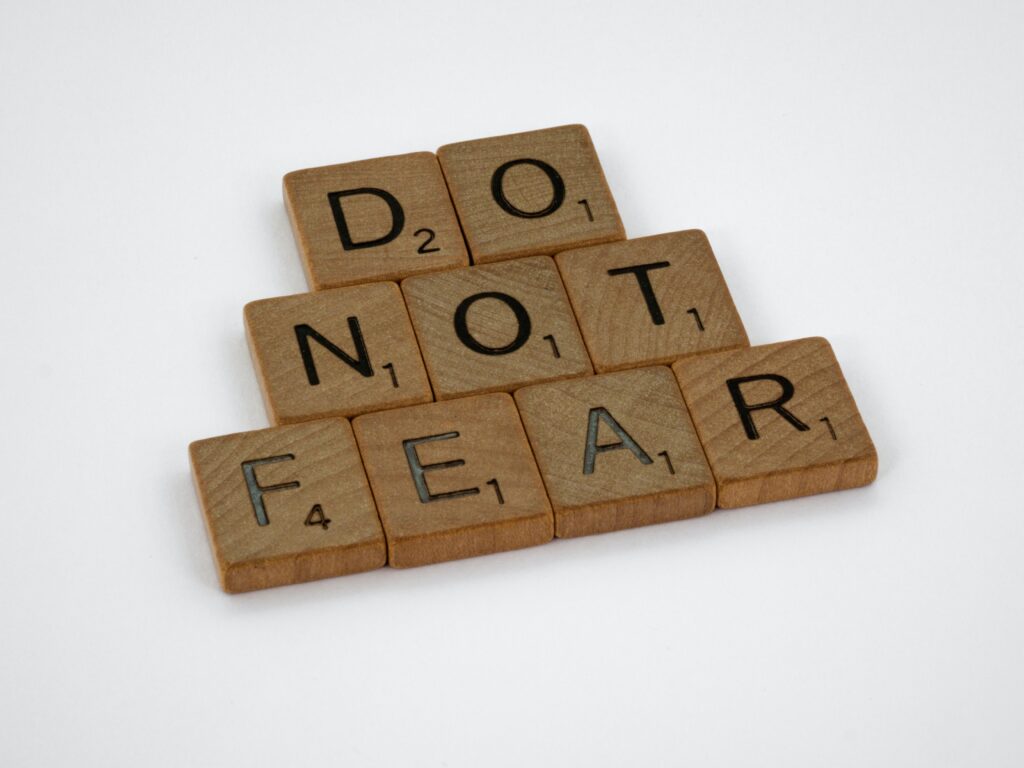Introduction
Social anxiety is a common challenge many introverts face, yet overcoming it is definitely within reach. This article explores a mindfulness-based approach, offering practical steps and insights to help introverts navigate social situations more comfortably. Even if you’re deeply introverted, change is possible, and some are making the introvert to extrovert transition. With a positive mindset and the right tools, you can learn to manage social anxiety effectively. Mindfulness stands out as a straightforward and powerful method, promising relief without the need for complex jargon or overwhelming techniques. Let’s dive in and discover how mindfulness can be your ally in overcoming social anxiety. 👍✨

How Mindfulness Can Specifically Help with Social Anxiety
Before diving into mindfulness practices, it’s essential to understand how they can specifically aid introverts dealing with social anxiety. Mindfulness, at its core, is about being present in the moment, paying attention to your thoughts, feelings, and surroundings without judgment. For introverts, whose minds are often bustling with inner thoughts and reflections, mindfulness provides a way to calm the mental noise and focus on the present. 🧘♀️✨
Many introverts find social situations draining because they are hyper-aware of their surroundings and tend to overanalyze interactions. Mindfulness helps in slowing down these thought processes, making social interactions less overwhelming. By practicing mindfulness, you can develop a stronger sense of self-awareness, helping you to identify and change negative thought patterns that contribute to social anxiety.
Additionally, mindfulness encourages a non-judgmental attitude towards oneself, which is crucial for introverts who may be prone to self-criticism, especially in social settings. Learning to observe your thoughts without getting caught up in them allows for a kinder, more compassionate view of yourself, reducing feelings of inadequacy and boosting self-confidence. 🙌
To get started on this journey of transformation, we have created an advanced introvert test that can help you understand your introversion better and guide you on how to navigate social situations with ease. This test is a great first step in acknowledging your social anxiety and finding tailored solutions to overcome it.
In conclusion, mindfulness is a valuable tool for introverts looking to manage social anxiety. It encourages a state of calm awareness, helping to break the cycle of overthinking and self-criticism that many introverts find themselves trapped in during social situations. With practice, mindfulness can lead to a more balanced and confident approach to social interactions, making them more enjoyable and less draining. 🌟

Developing a Mindfulness Meditation Practice
Embarking on a mindfulness journey requires dedication and consistent practice, and one of the most effective ways to cultivate mindfulness is through meditation. For introverts grappling with social anxiety, developing a mindfulness meditation practice can be a game-changer, offering a sanctuary of calm in the storm of social interactions. 🧘♂️✨
Meditation encourages a deep sense of presence and awareness, allowing you to observe your thoughts and emotions without getting entangled in them. This practice can be particularly beneficial for introverts, as it provides a quiet space to process and reflect, away from the external stimulation of social settings. Through regular meditation, you can cultivate a sense of inner peace and stability, which can significantly reduce the impact of social anxiety.
Starting a mindfulness meditation practice doesn’t have to be daunting. You can begin with just a few minutes each day, gradually increasing the duration as you become more comfortable. The key is consistency; even short daily sessions can lead to noticeable improvements over time. There are various forms of meditation to explore, such as focused attention, body scan, or loving-kindness meditation, allowing you to find the method that resonates with you the most.
To further support your journey and connect with others on a similar path, we encourage you to join our intro to extro community. Here, you can share experiences, seek advice, and discuss various aspects of transitioning from introversion to extroversion, all while fostering a sense of belonging and understanding.
In conclusion, developing a mindfulness meditation practice is a vital step towards overcoming social anxiety for introverts. It offers a quiet space for reflection, cultivates inner stability, and encourages a non-reactive awareness of thoughts and emotions, laying the groundwork for more comfortable and confident social interactions. 🌿✨

Mindful Breathing Techniques for Instant Relief
Apart from meditation, mindful breathing is another potent practice that can offer immediate relief in moments of social anxiety. For introverts navigating the intricacies of social interactions, having a go-to strategy to calm the mind and steady the nerves is crucial. Mindful breathing provides just that—a quick and accessible way to regain composure and stay grounded. 🍃💨
The practice involves focusing your attention on your breath, observing each inhale and exhale without trying to change it. This attention shift creates a break in the cycle of anxious thoughts that often accompany social situations for introverts. By anchoring yourself in the present moment through your breath, you can reduce the physical symptoms of anxiety, such as a rapid heartbeat or shallow breathing, creating a sense of calm and balance.
Incorporating mindful breathing into your daily routine is straightforward. You can practice it anywhere and at any time, making it an ideal tool for introverts who may need a moment of calm in social settings. Even a few deep, mindful breaths can make a significant difference in how you perceive and respond to social stimuli.
To guide you through this practice and provide additional strategies for managing social anxiety, we’ve developed a unique intro to extro roadmap. This guide offers a comprehensive approach to transitioning from introversion to extroversion, different from other resources available. It provides practical tips and exercises, including mindful breathing techniques, tailored specifically for introverts looking to manage social anxiety and build social confidence.
In conclusion, mindful breathing is a valuable tool for introverts dealing with social anxiety, offering a quick and effective way to calm the mind and body in stressful situations. By integrating this practice into your daily routine and using resources like our intro to extro roadmap, you can navigate social interactions with greater ease and confidence. 🌬️✨

Mindfulness-Based Stress Reduction (MBSR) for Social Anxiety
For those grappling with social anxiety, Mindfulness-Based Stress Reduction (MBSR) offers a structured way to tackle these challenges head-on. Originating in clinical settings, MBSR is a well-researched program that combines mindfulness meditation and yoga to reduce stress and improve psychological well-being. For introverts, this can be particularly beneficial, providing tools to navigate social situations with a sense of calm and clarity. 🧘♀️✨
The eight-week program encourages participants to engage in daily mindfulness practices, gradually building resilience against stress and anxiety. Through guided meditations, body awareness exercises, and gentle yoga, MBSR teaches individuals to observe their thoughts and feelings without judgment. This shift in perspective is crucial for introverts who may find themselves overwhelmed by negative self-talk and anxiety in social settings. By learning to respond rather than react, they can navigate social interactions with a newfound sense of stability and poise.
MBSR also emphasizes the importance of cultivating a non-judgmental attitude towards oneself, a key aspect for introverts on their journey to overcoming social anxiety. This acceptance creates a supportive inner environment, conducive to personal growth and positive change. By embracing mindfulness practices and the principles of MBSR, introverts can learn to manage their social anxiety more effectively, leading to improved social interactions and overall quality of life.
Additionally, MBSR provides a sense of community, as participants engage in group sessions and share their experiences. This group setting fosters a sense of belonging and support, showing introverts that they are not alone in their struggles with social anxiety.
In conclusion, Mindfulness-Based Stress Reduction offers a comprehensive and evidence-based approach to managing social anxiety, tailored to the needs of introverts. Through consistent practice and engagement with the program, introverts can learn to navigate social situations with grace, transform their relationship with anxiety, and cultivate a lasting sense of inner peace. 🌺✨
Success Stories: Real-Life Examples of Overcoming Social Anxiety
The journey to overcoming social anxiety through mindfulness is not just theoretical; there are countless success stories of individuals who have walked this path and found relief. For introverts, these real-life examples serve as powerful testimonies to the effectiveness of a mindfulness-based approach. 🌟✨
One of the most inspiring aspects of these success stories is the diversity of experiences. People from all walks of life, each with their unique challenges and backgrounds, have found solace and transformation through mindfulness. Introverts, in particular, share how incorporating mindfulness practices into their daily routine has led to a significant decrease in social anxiety and an increase in social confidence.
These individuals speak of a newfound ability to remain calm in social situations, where previously they might have felt overwhelmed. They describe a shift in perspective, where they are now able to observe their thoughts and feelings without getting caught up in them, allowing for more mindful responses rather than reactive behavior. This change not only impacts their experience in social settings but also contributes to a more balanced and fulfilling life overall.
The stories also highlight the importance of consistency and dedication to the mindfulness practice. Many emphasize that while the journey may have its ups and downs, the long-term benefits are well worth the effort. They encourage others to stick with it, even when progress seems slow, as the cumulative effects of mindfulness are transformative.
In conclusion, the success stories of those who have overcome social anxiety through mindfulness provide inspiration and motivation for introverts embarking on this journey. They serve as tangible proof that change is possible, and that with dedication, practice, and the right mindset, social interactions can become a source of joy rather than stress. These stories illuminate the path forward, showcasing the transformative power of mindfulness and its ability to bring about positive change in the lives of introverts. 🎉✨
Conclusion
In wrapping up our exploration of overcoming social anxiety through mindfulness, it’s clear that this approach offers a practical and accessible path for introverts seeking relief and transformation. Mindfulness empowers individuals to break free from the cycle of anxiety, fostering a sense of presence, calm, and confidence in social settings. 🌟
By incorporating practices such as mindfulness meditation, mindful breathing, and engaging with programs like Mindfulness-Based Stress Reduction (MBSR), introverts can cultivate a stable foundation to navigate social interactions more comfortably. These practices encourage a shift in perspective, allowing individuals to observe their thoughts and feelings without judgment, reducing the overwhelming nature of social anxiety.
The real-life success stories of those who have walked this path serve as powerful testimonials, showcasing the tangible benefits of mindfulness in overcoming social anxiety. They highlight the importance of consistency and dedication, reminding us that while the journey may have its challenges, the rewards of a more balanced and fulfilling life are well within reach. 🙌✨
In conclusion, for introverts grappling with social anxiety, embracing a mindfulness-based approach offers a way forward, filled with potential for growth and transformation. With practice, patience, and the right tools, social interactions can become opportunities for connection and joy, rather than sources of stress and discomfort. Mindfulness paves the way for this change, guiding introverts toward a life of greater ease, confidence, and overall well-being. So, embark on this journey with an open heart and mind, and discover the transformative power of mindfulness for yourself. 🌱✨




